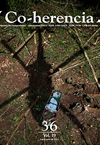But Does Reading Novels make us Better? Literary Fiction and Moral Development
Main Article Content
Keywords
Otherness, empathy, imagination, moral development, literature
Abstract
The novel has been enshrined as being one of the fundamental “vicarious experience techniques” for training our ability to put ourselves in other people’s shoes. There have been many who have seen a clear moral effect in this continuous exploration of otherness. The article reviews (1) the arguments of the enthusiasts of this idea, those who believe that reading novels makes us more empathetic and supportive; (2) those of moderates, who find that, above all, it helps us to exercise our moral judgment, and (3) those of the skeptics, who hardly see any moral purpose in the habit. The author then reviews some complexities of moral development, which make an easy connection unlikely, and concludes by distinguishing the ways in which reading novels can contribute to cultivating the humanity in us and to deepening humanitarianism.
Downloads
References
Altuna, B. (2018b). Empatía y moralidad: las dimensiones psicológicas y filosóficas de una relación compleja. Revista de Filosofía, 43(2), 245-262. https://doi.org/10.5209/RESF.62029
Altuna, B. (2022). Entre la imaginación comprensiva y la imaginación compasiva. Apuntes para una pedagogía. Artnodes, (29), 1-9. https://doi.org/10.7238/artnodes.v0i29.393021
Bajtín, M. (2004). Problemas de la poética de Dostoievski (T. Bubnova y J. Alcázar, Trads.). Fondo de Cultura Económica.
Batson, D. (1991). The Altruism Question: Towards a Social-Psychological Answer. Lawrence Erlbaum.
Batson, D. (2011). These things called Empathy: eight related but distinct Phenomena. En J. Decety & W. Ickes (Eds.), The Social Neuroscience of Empathy (pp. 3-16). Massachusetts Institute of Technology.
Benjamin, W. (1991 [1936]). El narrador (R. Blatt, Trad.). Taurus.
Black, J., & Barnes, J. L. (2021). Fiction and morality: Investigating the associations between reading exposure, empathy, morality, and moral judgment. Psychology of Popular Media, 10(2), 149-164. https://doi.org/10.1037/ppm0000281
Booth, W. C. (2005). Las compañías que elegimos: Una ética de la ficción (A. Dilon, Trad.). Fondo de Cultura Económica.
Chavel, S. (2012). Se mettre à la place d’autrui : L’imagination moral. Presses Universitaires de Rennes.
Eisenberg, N. y Strayer, J. (Eds.). (1992). La empatía y su desarrollo (I. Aizpurúa, Trad.). Desclée de Brower.
Hakemulder, F. (2000). The Moral Laboratory: Experiments Examining the Effects of Reading Literature on Social Perception and Moral Self-concept. John Benjamins Publishing.
Hoffman, M. (2002). Desarrollo moral y empatía: Implicaciones para la atención y la justicia (F. González del Campo Román, Trad.). Idea Books.
Hunt, L. (2009). La invención de los derechos humanos (J. Beltrán Ferrer, Trad.). Tusquets.
Johnson, D. R. (2013). Transportation into literary fiction reduces prejudice against and increases empathy for Arab-Muslims. Scientific Study of Literature, 3(1), 77-92. https://doi.org/10.1075/ssol.3.1.08joh
Keen, S. (2010). Empathy and the Novel. Oxford University Press.
Kogut, T., & Ritov, I. (2005). The “Identified Victim” Effect: An Identified Group, or Just a Single Individual? Journal of Behavioural Decision-Making, 18(3), 157-167. https://doi.org/10.1002/bdm.492
Kolhberg, L. (1992). Psicología del desarrollo moral (M. A. Zubiaur Zárate, Trad.). Desclée de Brouwer.
Koopman, E., & Hakemulder, F. (2015). Effects of literature on empathy and self-reflection: a theoretical-empirical framework. Journal of Literary Theory, 9(1), 79-111. https://doi.org/10.1515/jlt-2015-0005
Kundera, M. (1987). El arte de la novela (F. de Valenzuela y M. V. Villaverde, Trads.). Tusquets.
Kundera, M. (1994). Los testamentos traicionados (B. de Moura, Trad.). Tusquets.
López de la Vieja, M.ª T. (2003). Ética y literatura. Tecnos.
Nafisi, A. (2011). Leer “Lolita” en Teherán (M. Bellver, Trad.). Duomo.
Nussbaum, M. (1997). Justicia poética: La imaginación literaria y la vida pública (C. Gardini, Trad.). Andrés Bello.
Nussbaum, M. (2001). El cultivo de la humanidad: Una defensa clásica de la reforma en la educación liberal (J. Pailaya, Trad.). Andrés Bello.
Nussbaum, M. (2005). El conocimiento del amor: Ensayos sobre filosofía y literatura (R. Orsi y J. M. Inarejos Ortiz, Trads.). Antonio Machado Libros.
Nussbaum, M. (2008). Paisajes del pensamiento: La inteligencia de las emociones (A. Maira, Trad.). Paidós.
Nussbaum, M. (2010). Sin fines de lucro: Por qué la democracia necesita de las humanidades (M. V. Rodil, Trad.). Katz.
Oz, A. (2005). Contra el fanatismo (D. Sarasola, Trad.). Debolsillo.
Oz, A. (2007). La mujer de la ventana [discurso Premio Príncipe de Asturias de Las Letras 2007]. Fundación Princesa de Asturias. https://bit.ly/3teg4TE
Pinker, S. (2012). Los ángeles que llevamos dentro: El declive de la violencia y sus implicaciones (J. Soler Chic, Trad.). Paidós.
Rest, J. (2009). Background: Theory and Research. En J. Rest, J. & D. Narvaez (Eds.), Moral Development in the Professions: Psychology and Applied Ethics (pp. 1-26). Lawrence Erlbaum.
Ricoeur, P. (1996). Sí mismo como otro (A. Neira Calvo, Trad.). Siglo XXI.
Rorty, R. (1996). Contingencia, ironía y solidaridad (A. E. Sinnot, Trad.). Paidós.
Scarry, E. (1999). La dificultad de imaginar a otras gentes. En M. Nussbaum y J. Cohen (Comp.), Los límites del patriotismo: Identidad, pertenencia y “ciudadanía mundial” (C. Castells, Trad.; pp. 121-134). Paidós.
Shelley, P. B. (1986 [1840]). Defensa de la poesía (J. Vicente Selma de la Hoz, Trad.). Península.
Sontag, S. (2007). Al mismo tiempo: Ensayos y conferencias (A. Major, Trad.). Mondadori.
Steiner, G. (1994). George Steiner en diálogo con Ramin Jahanbegloo (M. Serrat Crespo, Trad.). Mario Muchnik.
Steiner, G. (1999). La barbarie de la ignorancia (A. Spire, Trad.). Mario Muchnik.
Todorov, T. (2009). La literatura en peligro (N. Sobregués, Trad.). Galaxia Gutenberg.
Volpi, J. (2011). Leer la mente: El cerebro y el arte de la ficción. Alfaguara.
Weir, P. (Director). (1989). Dead Poets Society [La sociedad de los poetas muertos. Película]. Touchstone Pictures.
Wren, T. (2001). Moral, multiculturalismo e imaginación literaria. En W. Van Haaften, T. Wren y A. Tellings (Comps.), Sensibilidades morales y educación. Volumen II: El niño en la edad escolar (G. Ventureira, Trad.). Gedisa.





